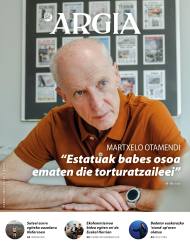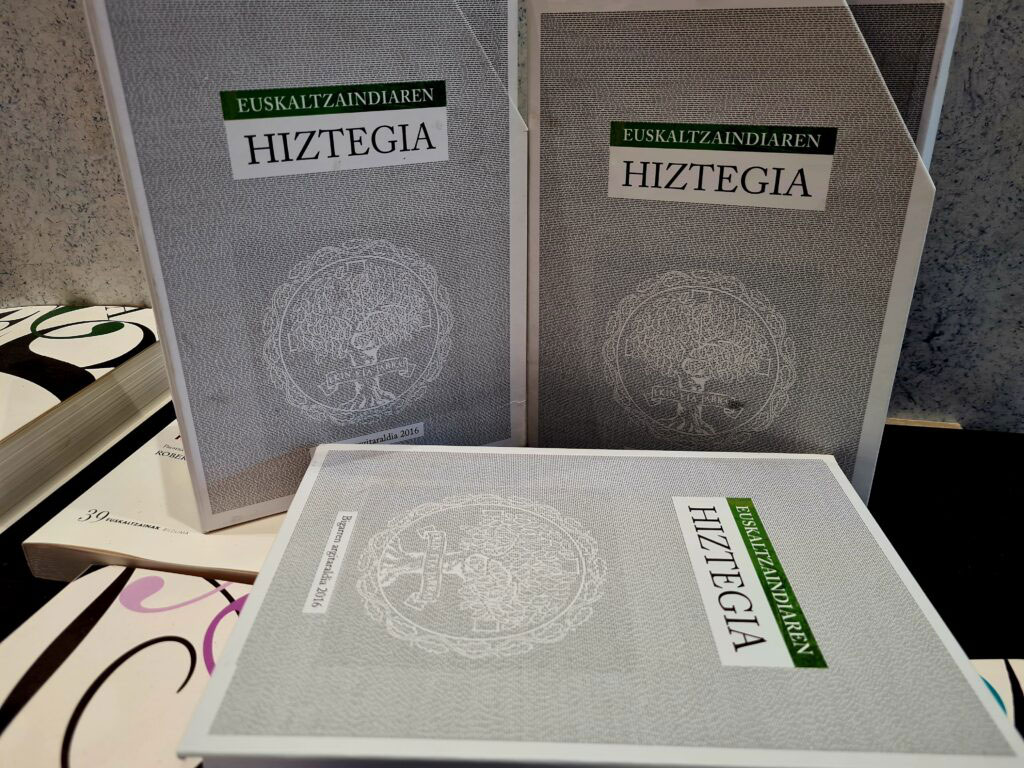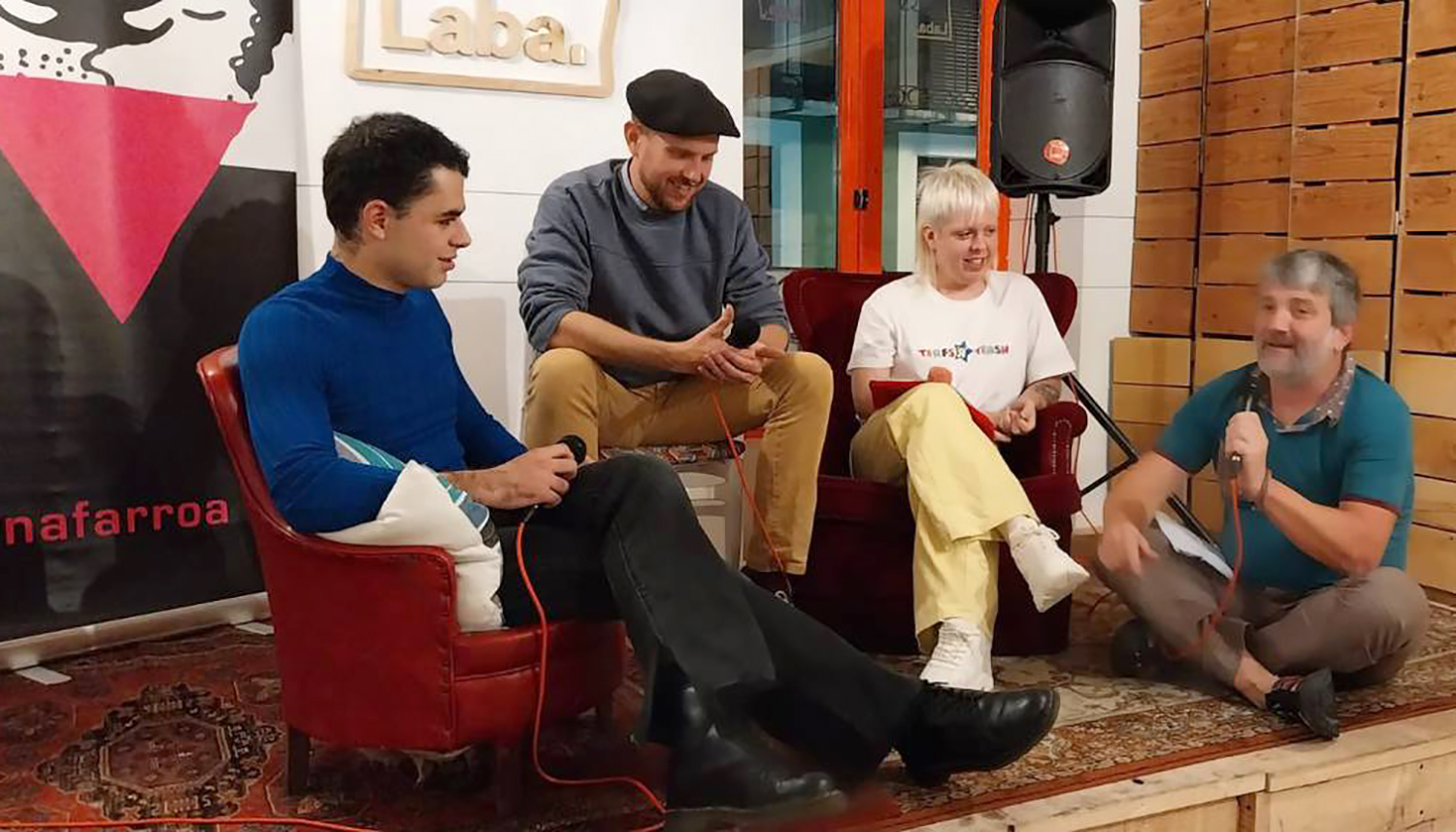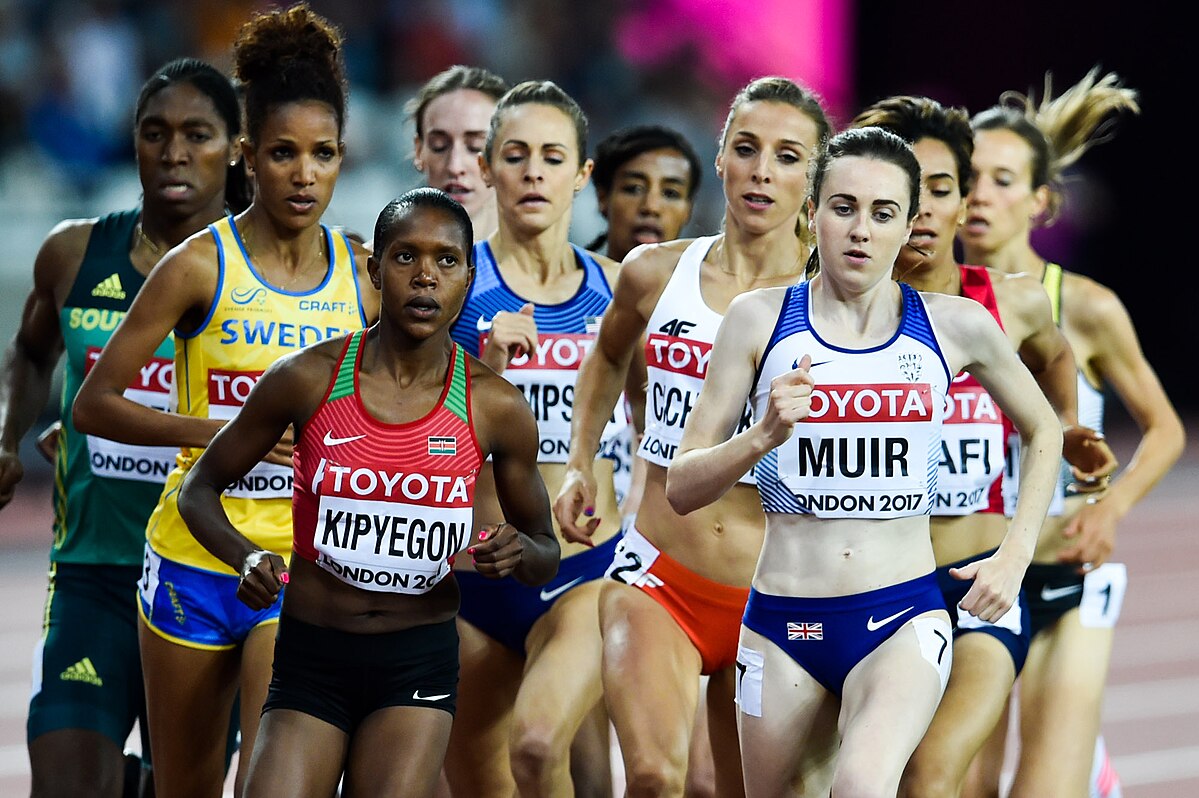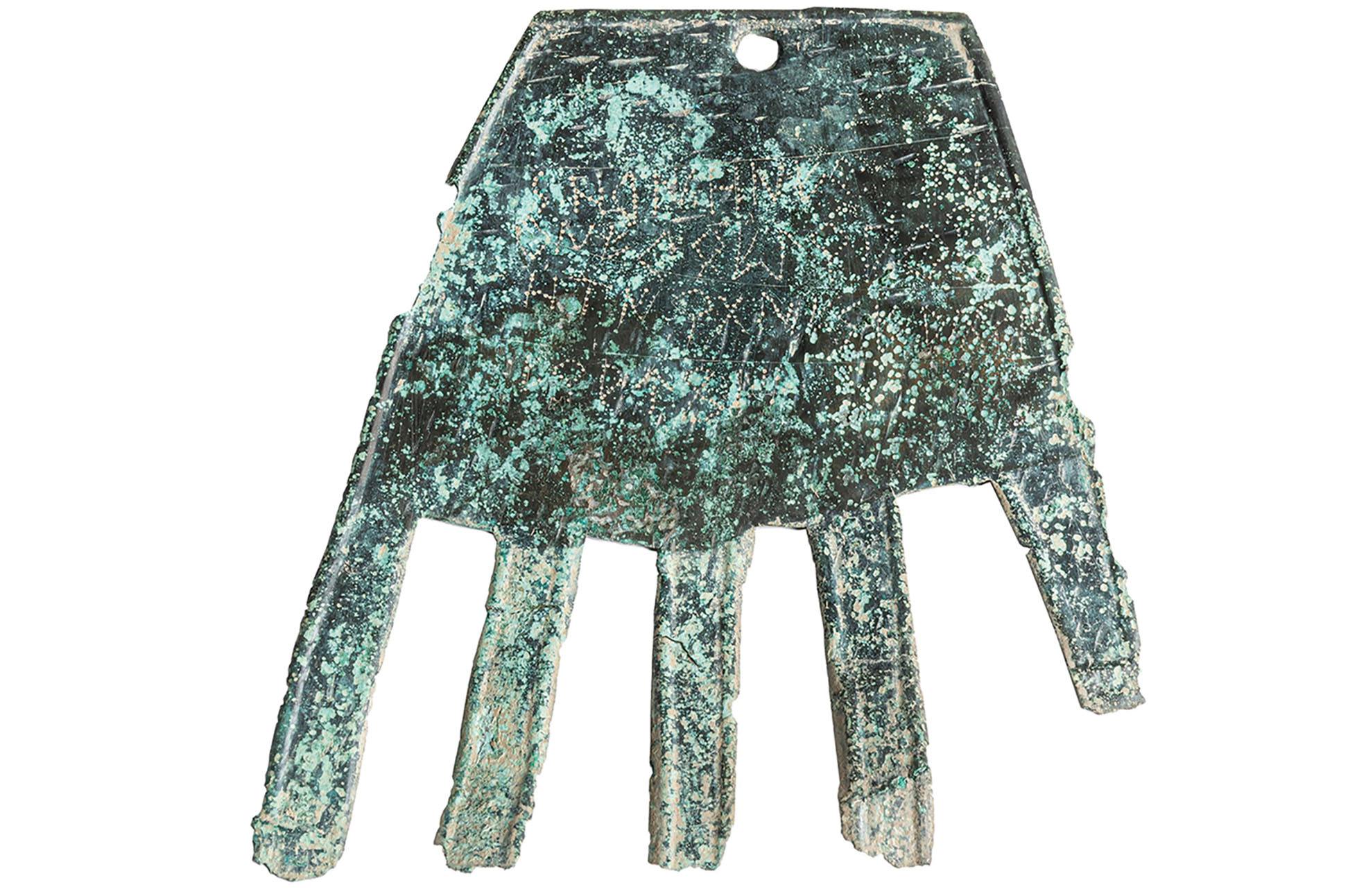"It was thought that if you introduced language into the education system, people would talk, but not."
- Ani Nandi is an Indian sociolinguist born in West Bengal. He is currently a postdoctoral researcher at the Department of Linguistics and Basque Studies at UPV/EHU and a collaborator at the Seminar of Sociolinguistics of the Real Academia de Galicia (Real Academia Galega) and at the Leiden University Centre for Dutch Linguistics. Its research themes are language policies, minority languages, Indian and European sociolinguistics, and the teaching of foreign languages.
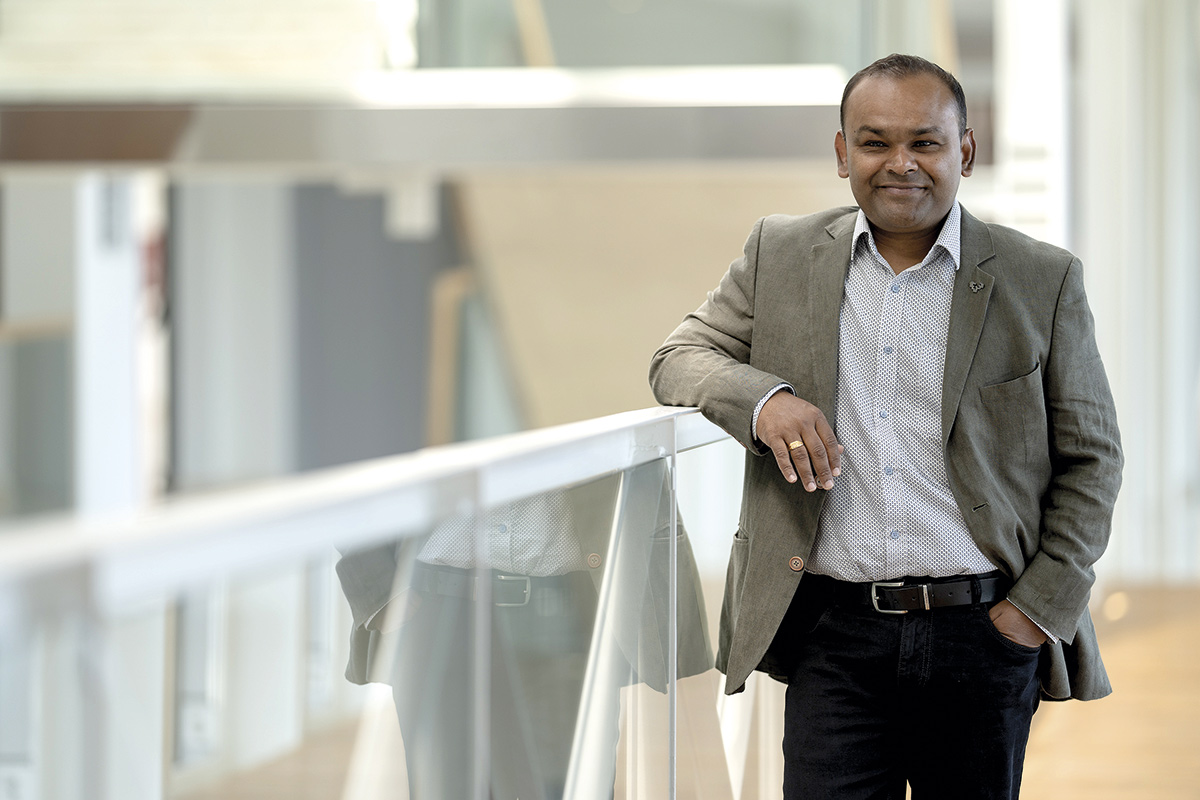
In one of the articles I've read you says we all have our own linguistic history. I would add that our linguistic history shapes and shapes our identities. What is your linguistic history?
I was born in a house that was only made in Bengali and then studied English at school and in high school. When I was 12, I read the book Twelve Classics for Youth, in Bengali, and there I knew the story of Don Quixote. I found this an interesting story. Don Quixote’s madness was very close to me, after as much study as that man went crazy… and that’s why I started studying Spanish in Calcutta, after the race.
I've studied English Philology. In college I read the book Language Death. The drama of the word “death” struck me and made me think of other issues, such as linguistic imperialism. My linguistic experience is also there, I have lived in a multilingual society and I know that no society is homogenous, and that there is always a hierarchy between languages. The study of this hierarchy is what interests me most.
In 2007, I went to Ourense to an art and design center. My job was to do and help a course.
He studied Galician and became interested in linguistic policies.
I was 25 years old and actually went to Ourense to improve my Spanish. In this bilingual reality, in the city of Ourense, I was greatly surprised to learn how many children from neighboring villages had a tendency to Spanish. I found it very striking because education was in Galician, but the Galician has a great social stigma.
And does that not happen in India?
Well, with my language, with Bengali, it does not happen, but now, after analyzing similar situations in European contexts, I realize that it is the same with other Indian languages, yes. Many times learning is a process of mislearning many things that we consider true.
"Almost none of the governments I've studied likes to make language policy assessments."
You have been investigating the linguistic policies of Galicia. It tells a little about the situation after Franco.
In 1983, a first law was drafted that sought to make a language policy that we call "low-intensity". Until 2004 it remained similar. Then, when a progressive government arrived, it was written on paper, but they tried to effectively implement the policy that was not being made to improve the situation of the Galician.
How is an effective language policy established?
For example, we have to assess how it works. Interestingly, almost one of the governments I've studied doesn't like to make assessments of language policies.
Because it's a very politicized process. Language policy always has a silent agenda (hidden agenda). Groups wanting to take part in power are constantly playing their cards. And they use speeches like those that suit them. For example, as Indians, it is surprising to me to see how the conservative government of Galicia speaks to the Galicians themselves of the idea of "imposition" of the Galician. And most interestingly, you've been given the speech.
In Galicia, in 2009 the conservative government returned to power and the decree of anteiglesia was implemented. More hours in English in exchange for doing less in minority language. I would venture to speak of a planned aggression at state level, aimed at reducing schooling hours in minority languages.
Yes, it is a good summary. After the implementation of the decree of multilingualism of 2009, very percentages preocupantes.Segun have been obtained the data published by the Institute of Statistics of Galicia in 2014, in the period 2008-2013 the lowest data of knowledge and use of the Galician; there have never been so many children who do not speak Galician before, 49%. Moreover, 30% of students do not know Galician well.
On the other hand, the introduction of English and the interest in including it in teaching, in pure and hard neoliberalism must be understood within the globalization process. Furthermore, if you decide to include a number of hours in a language as powerful as English, no one will say no, even if parents are in favour of minority languages. But where do we get the hours? It's hours. 30% in Galician, 30% in English and 30% in Spanish. The question is, does it take 30 percent of the hours to be in Spanish?
"It's hours. 30% in Galician, 30% in English and 30% in Spanish. The question is: Do you need 30 percent of the hours to be in Spanish?"
That is taboo.
Of course, you can't even talk about that. That is, selling English is easier, because nobody can deny the need for English in today's life. But that 30 percent doesn't make sure they learn English. I believe that learning English like this is not effective. In the end, they don't learn English or subjects. I am in favour of learning foreign languages as a language, but not as a means of learning in a place where that language is not spoken. We must take care of the language that most attends, in this case the Basque or the Galician. I think we should do an education based on Euskera and then take other languages. And be clear that you can't learn Spanish. Students will also learn in Spanish unintentionally.
Is there any possibility in a state for minority languages? Is there a way out?
You can't answer it because it's not you or black. We can think, for example, that it is necessary to generate linguistic awareness in society. In a lecture I said, some students were aware and told me: the fault is Franco's fault. And in part, it's true, but I want to talk about our role: we all have agency or action capacity, and it's important to ask ourselves, what are we doing to change the situation? We can talk about guilt, but we have to assume some responsibility.
For example, some Galician parents, for children to do so in Galician, take them to a school that teaches in Galician, use materials in Galician -- but among them they don't speak Galician. Creating an environment is important, but we must also try to talk. These parents know Galician, but they don't use it at home. They expect the education system to do all the work.
In Spain, language policies have always been based on the educational system. It was believed that if you introduced language into the education system, people would speak that language and not, because language policies are not limited to the scope of the education system. You want to close a hole but not look at another one. My main line of research is the analysis of those small holes, not the macro state, but the micro-. Bottom-up is research.
What is the place of the family in linguistic policies?
The family is the main actor in linguistic policies. It is the place where several individuals come together and negotiate in their daily work. The house is a complex context of continuous negotiation.
Why does the term “resistance policy” use to talk about policies within families?
Resistance is sometimes necessary when you disagree with a policy, also in the case of language policies. Let us use the example of cleaning policies: if you want to clean your street, what will you do? You can pay a person, wait for the village cleaning staff to come, or take the broom out and clean the street yourself. The third example is resistance. You see that you have an agency to manage this situation and you do. How do you do that? Other factors must be taken into account: socio-linguistic, socio-cultural and economic factors. The agency, what you can or can't do, what's in your hand or not, is different in each case. But as members of society, we all have access to power.
The simplest language policy is derived from the educational system, as in Europe all children pass through the educational system and it is easier to perpetuate some ideologies of government. It is the simplest way to apply a linguistic idea.
Following their example, others would be clearing the street, but we can also clean it.
Yes, we have tools to address these ideas and restore our communications.
"In Australia it has been observed that the processes of revitalizing their language help indigenous groups overcome health problems"
You have studied the domestic policy of some families living in an environment that speaks Spanish. In particular, he wrote: "These families prepare their children not only to cope with the dominance of Spanish outside the home, but also the emotional power and linguistic skills as tools necessary for the situation to be sustainable".To one thing that happens but that nobody speaks has spoken words: the integration problems that it means to children to speak a minority language, according to the contexts.
Once, a mother started crying. Her daughter told her she was older -- she was 10 -- and she could do what she wanted. "My birthday invitations I make them in Spanish." Boys and girls find hard situations in school if they come from Galician speaking families. It's not easy for him to integrate as a Galician speaker.
Can we talk about micro-violence?
Yes, absolutely. What is the definition of linguistic violence? It's verbal violence. And you, as a parent, cannot go against every person who opposes your child. You'll need to create a mask of tenderness and love for her, give you emotional intelligence. She said: "It's not teaching them, and it's done. You have to help them."
The question of minority languages appears to be a purely cultural issue here, but language has a great deal to do with human rights.
Many studies relate linguistic recovery with mental health or social well-being. For example, among Canadian indigenous groups. They have high percentages of sick diabetes and, above all, high suicide rates. There, it was seen that there was a link between self-harm and self-injury, and between identity and loss of language. You can't stay the same in school, you feel underneath -- it's a crazy wheel that ends up eating inside the person and sometimes kills her.
In Australia, it has been observed that the processes of revitalizing their very minority language help indigenous groups overcome health problems. With the improvement of the linguistic situation of a community, the health of its members also improves. It gives them importance, it helps them in the process of belonging and self-esteem. Revitalizing the language is much more than the language you speak. Language is fundamental in collective identities. How can the situation be improved? Making changes at the personal level and then at the group level.
Yes, but sometimes it is difficult to make a decision, for example, to push children into difficult situations.
Yes, but that's the best we can do for our children. The world does not disappear because we will close our eyes.
We are seeing more and more spelling errors in the writings of social networks, not only of young people, but also of the media. Some have become so common that they hardly hurt their eyes.
In this way, we can read in Spanish many things like: "You lose a dog," "It'll be that or k... [+]
Euskaltzaindia's motto is "ekin eta jarrai" ("ekin eta jarrai"), the outlawing of Euskaltzaindia. I don't know why the Academy wasn't outlawed, all three words appeared on its logo. The allegations have been made with less - and (those of one age remember the cassette of The Mondragon... [+]
Euskararen biziberritzea Ipar Euskal Herrian jardunaldia antolatzen du ostiral honetan Baionan Euskaltzaindiak. Euskararen alde egiten dena eta ez dena eztabaidatzeko mementoa izango da. Eragileak eta politikariak bilduko dira egun osoan.
In a one-hour commute to the workplace, I am accompanied by the car radio. On yesterday's journey, I had the opportunity to enjoy a short story program, as the last port of the road, full of curves, began in Karrantza. Short legends, yes, of few words, but stories of great... [+]







